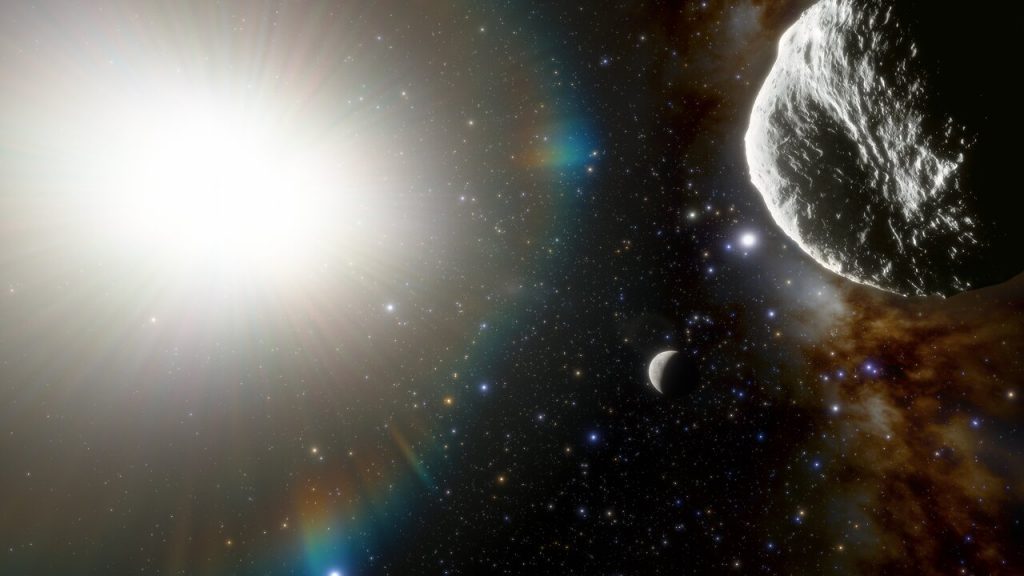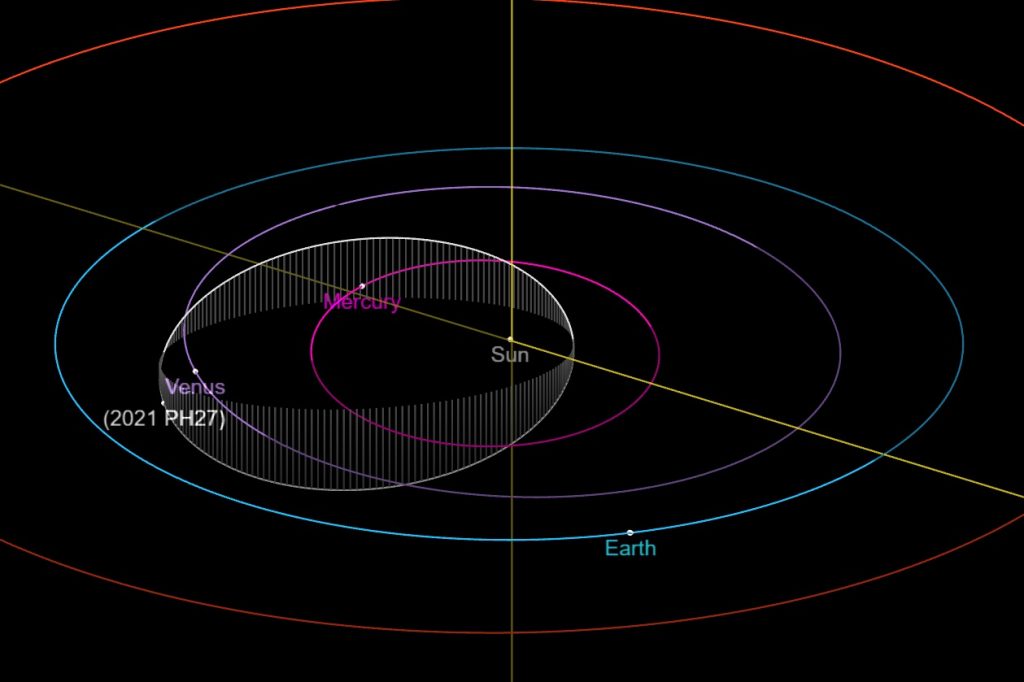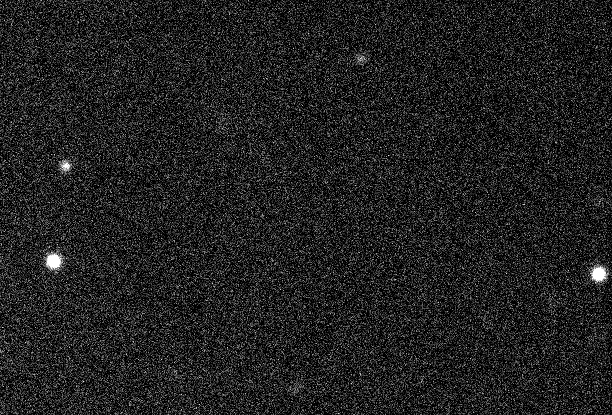
CTIO / NSF / NOIRLab / Aura / J. da Silva
There are new discoveries to be made, even in the inner solar system. This was highlighted this past week with the announcement of the discovery of tiny asteroid 2021 PH27. The asteroid orbits the Sun in just 113 days, the shortest orbital period for any known asteroid and the second shortest orbital period for any object in the solar system next to the planet Mercury, at 88 days.
The discovery was made by astronomer Scott S. Sheppard (Carnegie Institution for Science) after searching through images taken by Ian Dell’Antonio and Shenming Fu (both Brown University) at evening twilight on August 13, 2021. Subsequent observations with multiple telescopes around the world enabled astronomers to confirm the asteroid’s orbit.
The strange world of 2021 PH27
With a perihelion of just 0.137 astronomical unit (a.u.) (20.4 million kilometers, or 12.7 million miles) and an aphelion of 0.785 a.u., 2021 PH27 is a member of the rare class of Atira asteroids, with orbits entirely interior to Earth’s.
Even at its closest approach to our planet (near the asteroid’s aphelion), 2021 PH27 passes a good 0.215 a.u. from Earth.
The asteroid also has the distinction of having the smallest orbit of any known asteroid: With a semi-major axis of only 0.46 a.u., 2021 PH27 beats out the former holder 2013 JX28 (semi-major axis of 0.6 a.u).

NASA / JPL
The asteroid has an absolute magnitude (its brightness at 1 a.u. away) of +17.7, suggesting it’s about a kilometer across.
The surface of 2021 PH27 near perihelion reaches a blistering 480°C (900°F).
Like rock-comet 3200 Phaethon, 2021 PH27 is either a captured asteroid or dormant comet nucleus.
With an orbital inclination of 31.7° relative to the ecliptic, 2021 PH27 passes close to Venus on occasion; eventually, the second planet from the Sun may modify the asteroid’s orbit or kick it out of the inner solar system entirely.
Keep in mind, though, that more observations of 2021 PH27 are needed to pin down its orbit.

Search for inter-Mercurial asteroids
The discovery of 2021 PH27 is a tantalizing step towards finding possible members of an elusive class of hypothetical inter-Mercurial asteroids, known as Vulcanoids.
The as-of-yet undiscovered class of asteroids takes its name from Vulcan, a theoretical world interior to the orbit of Mercury evoked by 19th-century astronomers to explain the anomalous orbital precession of Mercury’s orbit.
Unfortunately, the effort to nab the first true Vulcanoid will have to wait for future surveys beyond DECam. “The telescope elevation limits prevent us from observing objects interior to Mercury,” says Sheppard. “To date, looking for objects interior to Mercury has only been efficiently done through observations high up in Earth’s atmosphere from airplanes, from spacecraft in space, or during solar eclipse events.”
2021 PH27 is an intriguing discovery, and may hint at more to come. [Sky and Telescope]
Now subscribe to this blog to get more amazing news curated just for you right in your inbox on a daily basis (here an example of our new newsletter).
You can also follow us on Facebook and/ or Twitter. And, by the way you can also make a donation through Paypal. Thank you!
You should really subscribe to QFiles. You will get very interesting information about strange events around the world.













Vulcanoids rhyme with Hemorrhoids, and they’re both a pain in the ass.
Uranus
Thanks, you sound like an expert.